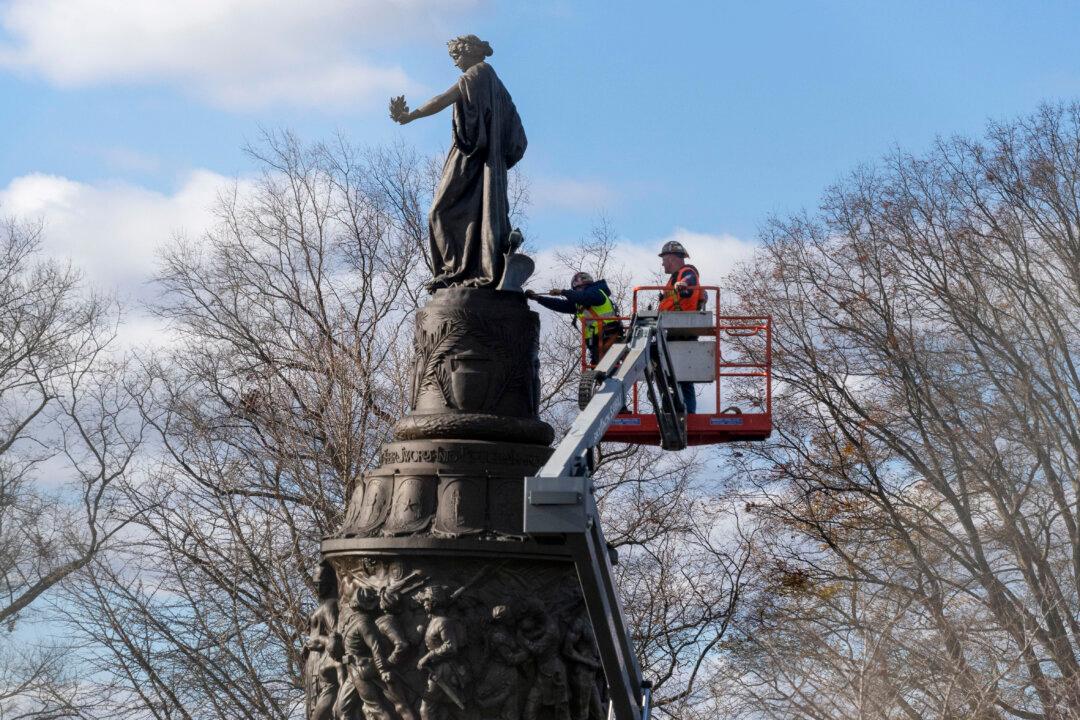A federal judge on Dec. 18 issued a temporary order halting the planned removal of a Confederate monument at Arlington National Cemetery in Virginia, according to reports.
Work had already begun to remove what’s known as the Confederate Memorial, which was erected in 1914 in honor of soldiers who died fighting for the Confederacy during the Civil War. The monument hadn’t yet been dismantled when the order was issued and remains in place on cemetery grounds.





